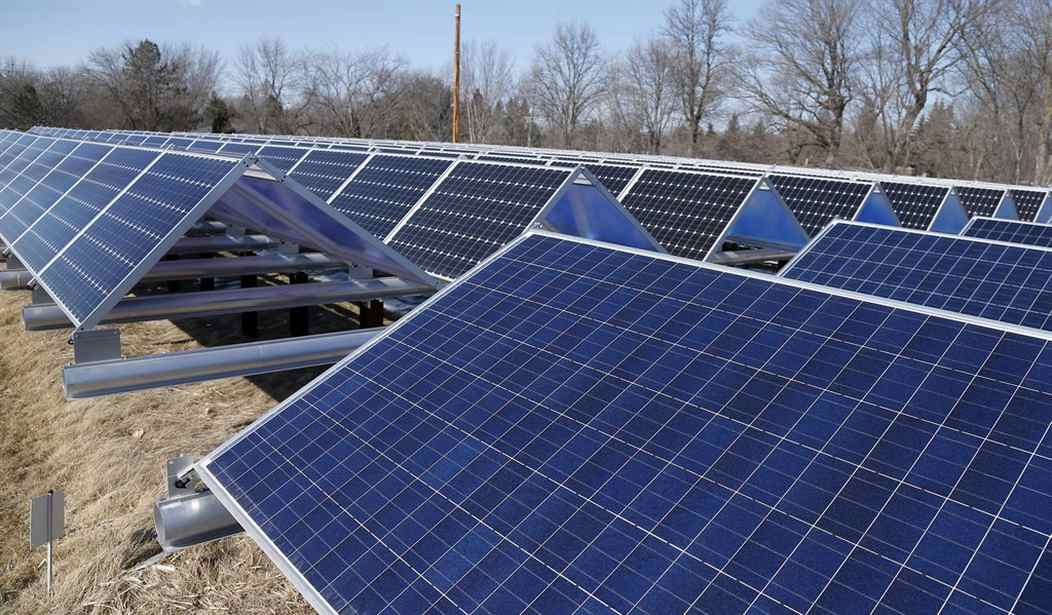If you listen to the media narrative on climate change and "clean energy," you'd think that the rest of the world has moved smartly and seamlessly toward 21st century green energy while the U.S. is the high-polluting laggard that just won't get with the program to save the planet.
Think again. The green energy revolution around the world has turned into a big green meltdown, with many nations sprinting away from "renewable" energy with the speed of Usain Bolt.
Here are a few of the latest news flashes from Europe and Asia. In Germany, the world leader in green energy, electricity prices have now reached a level triple those paid in the United States. Imagine the anger here if middle-class Americans saw a tripling of their utility bills each month.
In Britain, to comply with renewable energy requirements, power stations are burning hundreds of millions of pounds of wood pellets (pellets imported from the U.S.). Environmental experts confirm that burning wood is much worse for the environment than burning natural gas or even coal.
Australia, another "green energy" leader, saw its electricity prices skyrocket this past winter. According to an analysis by the Institute for Energy Research, power costs surged unbelievably -- from $100 per megawatt hour to $10,000 per megawatt hour. This was because of heavy dependence on an unreliable renewable energy program. The government had to reopen one of its shuttered natural-gas plants to keep prices from further exploding.
Sweden announced a decade ago that it was all-in on green energy, and the government launched a wind-power program. Embarrassingly, Swedish politicians now have had to acknowledge the program has become so expensive and inefficient that the government will phase out the subsidies lavished on the industry.
Recommended
In each of these cases, the economies and local factories have taken a big hit. According to the Institute for Energy Research analysis of Australia: "The government has found that its electric system that is heavily reliant on wind power (40 percent comes from intermittent renewable sources) cannot cope without reliable power from traditional generation sources. The fallout is that Australia is finding that its energy-intensive businesses are relocating to Asian countries that provide stable regulation and costs, lower taxes, cheaper wages, and less red tape."
So, very quietly, Europe and other nations aren't going so green anymore. The European Union spent an estimated $750 billion on green-energy handouts over the past decade, and all it's bought them is a doubling of power costs. This has given American steel, auto manufacturers, light manufacturers, agriculture businesses and technology firms a big competitive edge in world markets.
It's no wonder that European nations and Australia are desperate for the U.S. to move to the same dimwitted green energy policies that they have adopted.
What would that mean for America? One study by the U.S. Chamber of Commerce estimated that if America were to adopt the same mandates for renewable energy, the total cost to American consumers would be more than $600 billion and our industries would pay out at least $30 billion more.
By the way, the U.S. already provides subsidies to wind and solar power. And according to a 2016 American Action forum study, these subsidies are five times greater per unit of energy produced than subsidies given to nuclear power and 20 times more generous than those given to fossil fuels. Yet despite all the money spent on them, wind and solar power still account for less than 5 percent of American energy output. Why not just eliminate all American energy subsidies and let the free market decide?
Thankfully, Donald Trump has made it known that adopting more of the policy quackery of Europe -- at a time when the U.S. has more recoverable shale oil and gas and more clean coal than any other nation on the planet -- is no way to make America great again. Europe is running away from the fantasy of green energy, and this is one rare instance when America may want to follow their lead.

























Join the conversation as a VIP Member